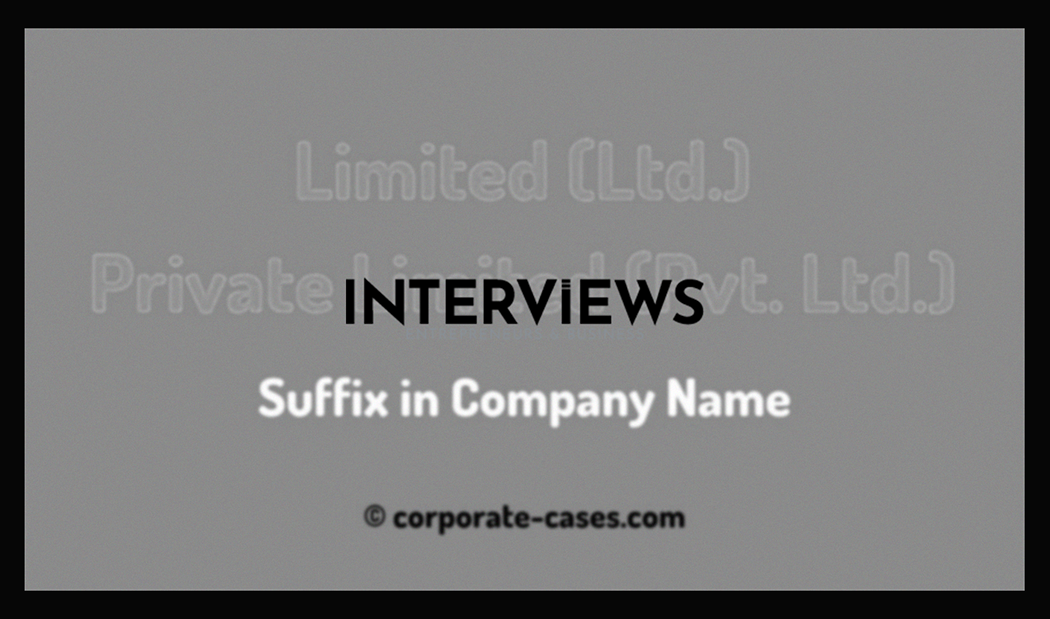Decoding Business Name Endings: “Inc.”, “LLC”, and the Alphabet Soup of Corporate Suffixes
So, you’re starting a business? Fantastic! You’ve got a great idea, a burning passion, and maybe a budget that’s a little tight. Hold on, entrepreneur. Before making cards and dreaming of covers, you must name your empire. It’s not just a fun word; it’s about business endings. “Inc.”, “LLC”, “Corp.”, “Pty Ltd”—it’s like alphabet soup but with serious legal issues. Fear not! We’ll help you understand these endings and navigate the naming maze.
Types of Business Name Endings: Your Suffix Starter Pack
Consider these endings your business’s identity stamp, signaling to the world—and the legal system—what you are. It’s not just decoration; it’s often legally required. Let’s look at common types:
Corporation Designations: The “Big Business” Badges
If you’re going big, like changing the world big, you might be a corporation. Corporations have specific name ending rules. Legally, a name *must* include terms that say “I’m a corporation!”. This includes:
- “Corporation”
- “Incorporated”
- “Company”
- “Limited”
- Cool abbreviations like: “Corp.”, “Inc.”, “Co.”, or “Ltd.”
- And, if you want, equivalents in other languages are usually okay too.
Think of it as a corporate Bat-Signal, but for legal reasons.
Limited Liability Company (LLC) Designations: Shielding Your Assets
Want liability protection without corporate hassle? Enter the LLC. These structures are popular, offering legal protection and operational flexibility. LLC names also need specific endings to show their status. Expect to see:
- “LLC” – Short and sweet.
- “Limited Liability Company” – For those who like to spell it all out.
- “Ltd. Co.” – A more formal option.
These endings protect your personal assets, showing you’re serious about business.
Other Designations: The “Pty Ltd” and Beyond
Different areas may have their own suffixes. In some places, private companies have unique endings. A common one is:
- “Proprietary Limited” or “(Pty) Ltd.” – Often used in South Africa and Australia for private companies.
Always check local rules—business naming is not universal.
Usage & Meaning: Decoding the Suffix Speak
Now you know the suffixes, but what do they mean? When can you use them? It’s not just for show. These endings carry legal importance.
Legal Significance: More Than Just Letters
legal identities. Slapping “Inc.” on your lemonade stand won’t make it a corporation. These names signify your business has undergone legal formation and exists as a separate entity from you. Think of it as a business passport.
Requirements for Usage: You Can’t Just “Inc.” Anything
This is important: You can’t just add “INC” to your name because it sounds cool. “INC” or “Corp.” is for businesses that are actual corporations. It’s like a superhero costume—it only impresses if you have power. If you aren’t incorporated, using these words is misleading and could lead to legal trouble.
Conversely, if you *are* incorporated and local laws require it, you should include “Inc.” or “Corp.” Compliance is key to avoiding future headaches. Missing suffixes create legal problems.
“Inc.” vs. “Corp.”: The Great Debate (Spoiler: There Isn’t One)
Let’s clear this up: “Inc.” and “Corp.” are legally identical twins. Both abbreviations mean “incorporated” and “corporation.” They signal “We’re a corporation!” equally. No legal difference exists between them.
The choice is about branding and regional flavor. “Inc.” feels modern and sleek. “Corp.” gives an established vibe. Legally? No difference at all.
If incorporating, choose the one that flows better or looks nicer on your logo. It’s just an aesthetic choice.
What “Co.” Really Means: Company… or Corporation? It’s Complicated.
Ah, “Co.” This is tricky. Often, “Co.” means “company.” Simple. “Company” is broad, used for partnerships or sole proprietorships under a name. It’s the vanilla ice cream of suffixes—common and non-specific.
However, sometimes, “Co.” can also stand for “corporation.” Confusing? A bit. Context matters. Usually, when you see “Co.” alone, it means “company.” If it’s in a longer title (like “XYZ & Co., Inc.”), it’s likely indicating corporate status. If unsure, clarity is crucial. If incorporating, go with “Inc.” or “Corp.” for less confusion.
What “Inc.” Is Shorthand For: Incorporated – Case Closed
We mentioned this, so let’s make it clear: “Inc.” means “incorporated.” Period. It’s the global shorthand for businesses that are recognized as corporations. “Inc.” shows you’ve created a legal entity. It signals you’re doing business legally.
What “PLLC” Is All About: Professionals Only!
Now for something specialized: “PLLC.” This means Professional Limited Liability Company. This structure suits licensed professionals—doctors, lawyers, accountants, architects, etc. PLLCs offer liability protection but come with specific rules for licensed professions. If you’re opening a practice, “PLLC” might be your suffix.
Restrictions and Considerations: Name No-Nos and Naming Gotchas
Naming your business isn’t free-form. There are rules and things to avoid. Think of it as navigating a naming minefield—one misstep can lead to legal trouble.
Restricted Words: Government Impersonators and Other Off-Limits Terms
You can’t just put any word in your business name. Certain words are restricted to avoid confusion or because they’re reserved for specific entities. No-nos include:
- Government terms: “Commission,” “Department,” “Bureau,” “Municipal.” Unless you *are* a government entity, these are off-limits. You can’t pretend to be the DMV for customers.
- Financial terms: “Bank,” “Trust,” “Trustee,” “Fiduciary.” If you aren’t a bank or trust company, avoid these terms.
- Insurance terms: “Insurer,” “Insurance Company,” or anything suggesting insurance. If you’re not in insurance, skip these words.
- Professional titles (if you aren’t licensed): “Attorneys at law,” “Architects,” “Family doctor.” Don’t mislead people about your qualifications.
Misleading Terms: Don’t Be a Naming Trickster
Avoid terms that mislead about your business nature. Your name shouldn’t indicate something false. If you’re an online t-shirt store, don’t call yourself “Global Aerospace Solutions LLC.” It’s confusing and won’t attract rocket scientists to your site.
General Restrictions: Keep it Legal, Keep it Clean
Some common-sense restrictions apply:
- No offensive or illegal implications: Choose a family-friendly name. Avoid anything offensive or implying illegal activity. “Murder Mittens Kitten Daycare” might be catchy, but rethink that.
- Avoid names too similar to existing businesses: Don’t copy others. Picking a similar name can cause trademark and customer confusion problems. “Amazin.com” likely wouldn’t work.
- your research and aim for originality.
Geographic Limitations: Think Global, Name Local? Nope.
Avoid names that are too geographically specific. “Texas Marketing Research, LLC” may seem logical if you’re in Texas, but it limits growth. Expand your potential unless your business is tied to a location like “Austin City Limits Music Venue.”
Best Practices for Choosing a Business Name: Name Game Strong
Now, let’s discuss crafting a great business name. A good name is an asset. A bad name can lead to marketing problems. Here’s your cheat sheet for naming success:
General Qualities of a Stellar Business Name:
- Catchy and Memorable: You want a name that sticks in people’s heads—easy to remember is easy to recommend.
- Easy to Say and Pronounce: If people trip over your name, they won’t say or share it. Keep it pronounceable.
- Relevant to Your Business: While not always necessary, a name hinting at what you do is helpful. But don’t be too obvious.
- Emotionally Triggering: Names that evoke feelings are strong. Brands like “Nike” and “Apple” are prime examples.
- Short and Simple: Shorter names are easier to remember, type, and say. “Bob’s Burgers” beats “Robert’s Gourmet Burger Emporium.”
- Easy to Type: If your name is hard to type, you’re losing customers.
Domain Name Availability: The Digital Real Estate Factor
In today’s world, check domain availability before you fall in love with a name. Your domain is your online address. Ideally, it should match your business name. Imagine naming your company “The Cloud Ninjas” only to find CloudNinjas.com taken by a diaper service.
Other Name-Crafting Considerations:
- Reflects Your Brand Personality: Your name should match your brand’s vibe. Is it playful or serious?
- Appealing and Memorable: It’s worth repeating – make it stick!
- Easy to Spell: Misspellings can lead to lost customers. Avoid commonly misspelled names.
- Avoid Names That Are Too Descriptive: Being descriptive is good, but too much can box you in.
- Tailored to Your Industry and Brand Personality: Consider how your industry guides your choices.
Techniques for Name Creation: Brainstorming Bonanza
Stuck in a naming rut? Here are some creative techniques:
- Brainstorm Keywords: List words related to your business, products, and target audience. Mix and match.
- Alliteration: Words with the same sound are catchy. Think “PayPal” or “Coca-Cola.”
- Acronyms: Use initials to create shorter names. Think “IBM” or “KFC.”
- Foreign Words: Adding another language can make a name unique. Understand its meaning!
- Use Your Name: This builds personal branding. Think “Martha Stewart Living.”
- Tell Your Story: Incorporate your business’s origin story or unique mission.
Business Structures and Naming: Structure Matters
Your business structure (LLC, Corporation) impacts naming requirements. Let’s reiterate some key points:
LLC vs. Corporation (Inc.): Suffix Showdown
Remember, “Inc.” and “Corp.” denote corporations. If forming an LLC use “LLC,” “Limited Liability Company,” or “Ltd. Co.” Don’t mix them! Using the wrong suffix can cause issues.
Corporations are distinct entities requiring identifiers like “Inc.” or “Corp.” LLCs provide liability protection but differ legally.
Naming an LLC: The Checklist
When naming your LLC, use this checklist:
- Is the name available in your state? Check your state’s registry.
- Is the name trademarked? Conduct a search.
- Is a matching domain name available? Check registrars.
- Is it memorable and relevant? Apply those best practices!
Naming a Business After Yourself: Personal Branding vs. Privacy
Using your name can help branding for freelancers or consultants. It personalizes your brand and connects you with your work. Think photographers or writers.
However, there are downsides. If your business name is your own, separating personal and business life can be hard. Your reputation will intertwine with your business. Selling such a business may be challenging.
Additional Considerations: The Nitty-Gritty Details
Almost there! Here are bonus points for naming:
SIC Codes: Why Banks Might Care About Your Business Name
SIC codes categorize businesses by industry. Banks look at them, especially for high-risk industries. Industries like casinos might face scrutiny from banks regarding loans.
DBA (Doing Business As): Your Alias in the Business World
DBA stands for “Doing Business As.” It allows you to operate under a name different from your legal name. It’s useful for branding under a single legal entity.
High-Risk Business Names: About Industries More Than Names
This pertains to businesses in high-risk sectors, not the names themselves. Certain industries face regulatory hurdles. Financial scrutiny may increase for these sectors.
Professional Suffixes (Personal Names): Beyond “Jr.” and “Sr.”
Suffixes like “MD,” “PhD,” denote qualifications tied to personal names. They’re not for business names, indicating credentials.
Generational Suffixes (Personal Names): The “Jr.”, “Sr.”, “III”
Generational suffixes distinguish family members over time. These conventions aren’t related to business names unless naming a dynasty.
Phew! Naming your business is a journey. With this knowledge, you’re ready to choose a catchy, legally sound name. Now go ahead and name that empire. Just avoid “Emperor of Everything, Inc.” – Trademark issues.




